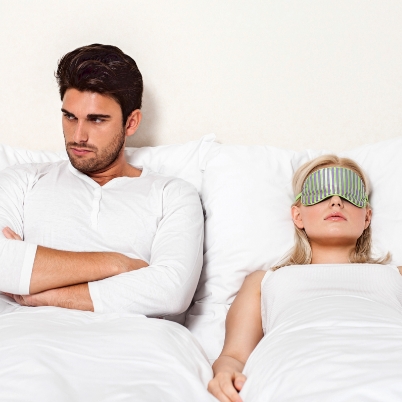
TESTOSTERONE THERAPY FOR MEN
DO YOU HAVE LOW TESTOSTERONE?
Many of our male patients complain that life has lost some of its vibrancy over the years. Men ranging from their 30s to their 60s come to us wanting to know why they feel like something is missing, something they can’t necessarily put a finger on. Often manifesting as a feeling that love and relationships have become less exciting, that sex has gotten less frequent or less pleasurable, or that hobbies have begun to feel more like hassles, these signs of diminished vitality are a major source of concern.
EXPERIENCE THE 4EVER YOUNG DIFFERENCE.

SYMPTOMS
Some men express dissatisfaction with how they feel but assume these symptoms are just part of the aging process that they should accept.
They aren’t. Aging doesn’t have to mean disengaging from the things you enjoy. The culprit for the feelings described above may be low testosterone. Low levels of this essential male hormone can lead to a range of distressing symptoms:
- Increase in abdominal fat
- Decreased libido/sexual performance
- Lower energy levels
- Sleep disturbance
- Poor erection quality/quantity
- Less drive and competitiveness
- Loss of lean muscle mass and strength
- Slower recovery from exercise and injury
- Gradual slowing of mental function and memory
Don’t let hormone changes get in the way of your prime.

TESTOSTERONE DECLINE AND DEFICIENCY TODAY
Low testosterone can be caused by several conditions, but one of the most common reasons for low testosterone levels is the onset of andropause. Like menopause in women, andropause is a medical term for a transitional time in men that begins around the mid-forties, or sometimes even earlier. During andropause, normal aging kicks off a process that causes hormones to dwindle by about one to two percent a year. That’s when symptoms associated with aging may begin to appear.
Symptoms of low testosterone are now appearing in more men than ever before. A 2007 study in the Journal of Clinical Endocrinology and Metabolism noted that testosterone levels for the average American man across age brackets were notably lower than in previous decades. Today’s average 60-year-old can expect to have lower testosterone levels than a 60-year-old would have had in the 80s. This holds true with men in every age group, and scientists can only speculate as to the cause. It’s clear that men today have to be more vigilant about their hormone levels.
We’re not just seeing the effects of low testosterone in men who are moving towards andropause. Younger men, especially men who are overweight or obese, may also have deficient levels of testosterone. An initial deficiency in testosterone can lead to a destructive cycle, since mild deficiency can encourage weight gain and inactivity, which may then contribute to a further decrease in testosterone. Fat actually produces a form of the female hormone estrogen that’s usually present only in very small amounts in men. This excess estrogen can wreak havoc on hormone balance.
Low testosterone can severely impact quality of life regardless of how old you are. Don’t hesitate to advocate for your male health even if you think you’re “too young.” You can put a stop to the cycle of imbalance and get your hormones back on track, which will support a healthier future and stave off problems associated with testosterone deficiency, including osteoporosis and sexual dysfunction.

Why Choose BHRT for Low Testosterone?
The decline in sexual enthusiasm, energy levels, and mental clarity due to low testosterone that men often experience as they approach middle age isn’t an unchangeable fact of life. Bioidentical hormone replacement therapy (BHRT) for men can address these symptoms by providing your body with testosterone that’s identical to what it produces on its own. As men live longer and more active lives, it’s crucial to maintain vigorous male health by addressing this major underlying cause of decreased wellness.
Medically-supervised bioidentical testosterone therapy has helped millions of men reverse the symptoms and health risks of low testosterone. During therapy, men can also benefit from lifestyle changes, including stress management, improved sleep, regular exercise and a hormone-healthy diet, as well as supplements that support the body as it gradually restores hormone balance. We’ll help you get your fire back with treatment that’s backed by solid medical science.
- Decreases body fat
- Increases muscle mass and tone
- Improves libido and sexual performance
- Increases strength and endurance
- Improves exercise tolerance
- Enhances mental clarity
- Imparts a more energized and positive mood
- Improves drive and motivation
- Renews overall zest for life and love

BHRT OPTIONS AND YOU
There are a variety of options available for testosterone replacement therapy, but the way they interact with your body—and your schedule—can differ widely. Learn how:
Injections
4Ever Young offers prescription bioidentical testosterone that you inject directly, allowing for more immediate absorption by the body. We train our patients how to properly inject these hormones on their own, but we’re always on hand to provide assistance with any portion of the treatment process. This testosterone is no different than the testosterone that your body makes when it’s functioning optimally and is given in weekly injections to bypass the liver, which can be damaged by oral therapy.
Pellets
4Ever Young is proud to offer pellets as an alternative to injections, for those who want a “set and forget” approach to their bioidentical HRT. These tiny pellets are no larger than a grain of rice and are inserted into the upper hip by a medical professional in our office. Because the pellets are so small, there’s no need for stitches. Testosterone pellets release a steady dose of testosterone for several months, imitating how the body’s testosterone is released. You don’t have to remember a daily dose—simply come in to replace them when they’ve been metabolized by your body. We’ll measure your hormone levels throughout treatment and let you know when you’re due to have them replaced.
Topicals
Both men and women have used testosterone gels and creams as a non-invasive way to get a dose of hormones through the skin. While gels and creams are generally easy to use, we don’t typically recommend them for most as they are easily transferable by skin-to-skin contact.
OUR PROCESS
Every patient is different. To help ensure the safety of BHRT, we require appropriate testing, examination and discussion of your symptoms with a healthcare practitioner. All of our testosterone therapy regimens involve close monitoring to ensure that your hormone levels are within the ideal limits and confirm the results of treatment. We’ll be with you every step of the way as you work towards regaining your vitality.
FREQUENTLY ASKED QUESTIONS
Is bioidentical testosterone therapy for men safe?
When monitored and guided by trained medical professionals, BHRT is absolutely safe and can improve your health. Millions of men have used bioidentical testosterone therapy to help them feel their best.
How long until I see and feel results?
This varies by patient. Many patients will see relief from some symptoms within the first 2-4 weeks, while others will take more time to resolves.
Will I ever “get better”?
Because your body will never resume producing these hormones on its own, you will need to continue testosterone therapy for as long as you want keep experiencing the benefits of optimal hormone levels.
Do I need to change my lifestyle during treatment?
While using testosterone therapy to treat your underlying hormone deficiencies and imbalances can have an incredible impact on your wellness, we also recommend beginning on a course of supplements, regular exercise, and a healthy diet. With these forces working together, you may begin to feel even better than you did twenty years ago!
* Individual Results May Vary & Are Not Guaranteed
Recent Studies:
Hormonal changes and their impact on cognition and mental health of aging men.
Lean tissue mass and energy expenditure are retained in hypogonadal men with spinal cord injury after discontinuation of testosterone replacement therapy.
Experience the 4ever young difference.



